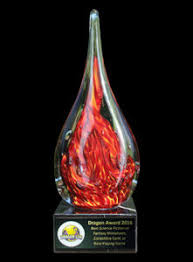For those with ad blockers, here's a pic of the cover:
:
For a condensed version of this review, check out Goodreads. I'll also post a review on Amazon.
Greetings to all my internet friends and neighbors, and Happy Last Monday for those of you who came here for the Dragon Award finalist review! There are now 5.6 days left before voting closes at midnight on August 31. And for those family members who dropped in: do you suppose the Lone Star Brewery in San Antonio is still in business? And with all the Germans living nearby in New Braunfels, why don't they feature a German beer along with the American stuff?
So, yesterday was Sunday, and while I WANTED to just kick back and do the sweet family things, like go to church together, eat a nice relaxing lunch, and then take a lovely nap, it didn't quite work out that way. We DID make it to church, though, so that's good.
But, by the end of the sunlight, a time that's good just to hang out with my gift-from-God, happily-ever-after trophy wife Vanessa, the elegant, foxy, praying black grandmother of Woodstock, GA, as she reads and I read, I was just the teeniest bit bushed. As a result, I didn't finish reading “Unholy Land” until this morning.
This is my first exposure to the author, and when I saw that the postulated an alternative Jewish homeland in Africa, instead of Israel, it raised my hackles. A number of the books I've read so far in this series fall into the “progressive” camp (I don't know what that means, but that's how they refer to themselves), and somehow, that camp seems to issue a lot of anti-Semitic proclamations. I wasn't ABOUT to sit through a rant espousing driving the Jews into the sea, so, I started cautiously. It turns out I had nothing to fear; at least, from that quarter.
Here's the set-up: a plan to provide a safe haven for European Jews in Africa actually was fulfilled, in the early 1900s. As a result, the Nazi genocide didn't happen. Adolph Hitler was assassinated in 1948, but some form of a more beneficent National Socialism in Germany remained. The new land is called Palestina, located between Uganda and Kenya, with a border on Lake Victoria.
An ex-pat pulp mystery writer named Lior Tirosh decides to return to his homeland, perhaps to visit his perhaps-dying father, perhaps to seek healing from a yet-unspecified trauma. He encounters very tight security at the airport and elsewhere, and discovers a great wall being built for the protection of the country. Although the British had claimed ownership of the land, and had conferred the title onto the new state, the locals on the ground weren't consulted, and engaged in low-intensity conflict with the settlers from the beginning. Raids and bombings were becoming more frequent.
Tirosh begins to experience a growing sense of disconnectedness from his environment. His editor calls, and he doesn't recognize the sound of his cell phone. People stare at him when he finally takes the call, as if they had never seen a cell phone before, and at the end of the call, the text refers to the phone as a case for his eyeglasses.
An unexpected and seemingly utterly random attempt on his life goes wrong, when a childhood acquaintance breaks into his hotel room to greet and interrogate him, and passes the time away by drinking whiskey from the mini-bar in his room.
And right after that, the primary plot development becomes evident. Tirosh and others are in a multi-dimensional time flow, with parallel worlds slipping past each other, seemingly at random. Other characters also are slipping back and forth between the worlds; some are hunted and others the hunters.
It gets very confusing, particularly when the POV character shifts without notice. And that happens a lot.
The closest to a political statement comes as Tirosh contemplates the multiverse:
And you wonder what Jews are like when they are not defined by the great Holocaust that shaped them, the survivors, that formed of them creatures of power and guilt: more easy in their ways, perhaps, more comfortable in their skins, or perhaps just a nation as all other nations, with the same natural impulses to assert themselves, to be masters in their kingdoms.
Tidhar, Lavie. Unholy Land (pp. 215-216). Tachyon Publications. Kindle Edition.
It's an INTERESTING read, but the promise of a straight-forward narrative I saw in the first part of the book essentially vanishes when the multi-verse plotline is introduced. It becomes more a book that you and your discussion group would want to read if you were interested on different perspectives on the continuing violence in the Middle East.
And now, The Question: Is “Unholy Land” a contender for the 2019 Dragon Award in the Best Alternate History Novel category?
I don't see how, for a couple of reasons. In the first place, there is no coherent plot, and nothing is explained satisfactorily, and nothing is resolved. There are too many partial players, and no POV unites the book. So, based on strength of story, “Unholy Land” is an also-ran.
In the second place, I don't know how a book with only 11 Amazon reviews makes the finalist list for a Dragon Award. The last book I reviewed had only 9 reviews, so it can happen. I don't know any of the stats on nominating frequencies, but it doesn't appear to me that the book has enough of a cult status to win on that basis, either.
YMMV.
Peace be on your household.


Prices move around, perhaps in response to impending Dragons, perhaps for other reasons. These numbers were accurate at the time.
ReplyDeleteHere's what you will pay for this book on Amazon:
Kindle: $8.69
Audio-book:$24.47
Paperback: $15.95
Hardback: $ N/A
Amazon reviews: 11; 4.2/5.0 stars
Goodreads reviews: 128; 3.79/5.0 stars
Lavie Tidhar is from Israel
ReplyDelete